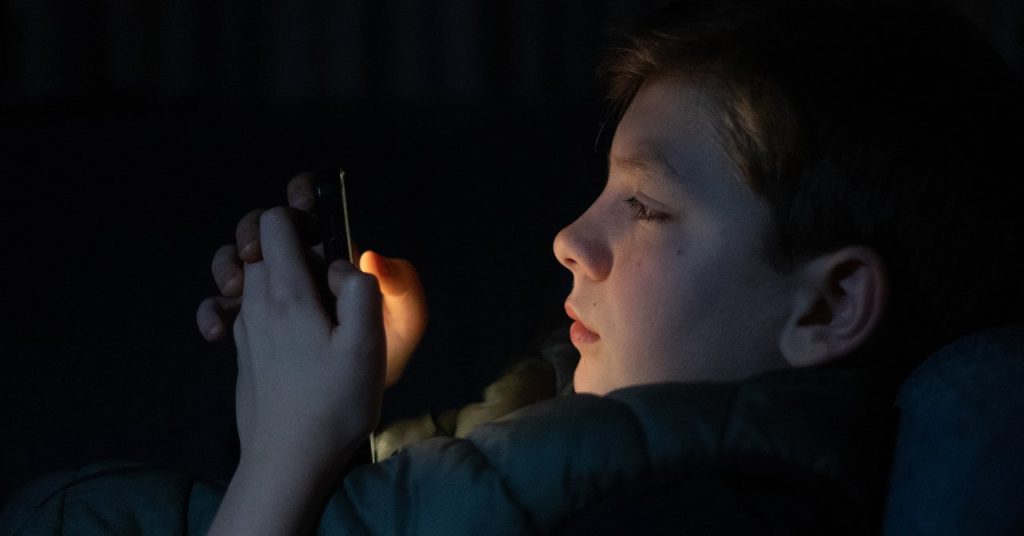The Smartphone Debate: Navigating the Impact on Youth
A Moment of Reckoning
The anti-smartphone movement is gaining traction. Recently, Florida governor Ron DeSantis enacted legislation prohibiting children under 14 from using social media platforms. Meanwhile, the UK government has taken steps to safeguard children online.
The Great Rewiring
Jonathan Haidt, a social psychologist, argues that the early 2010s marked a pivotal shift in childhood. With the introduction of front-facing cameras on smartphones and the launch of Instagram, children became constantly connected and exposed online. Haidt believes this led to a surge in anxiety, depression, and self-harm, particularly among young girls.
However, Haidt suggests that smartphones are just one aspect of a larger problem. He contends that a culture of “safetyism” in the West hinders healthy child development by keeping them indoors, shielding them from risks, and replacing free play with structured activities or video games. Haidt compares the thrilling merry-go-rounds of the 1970s to modern, safety-focused play equipment that limits opportunities for learning through risky play.
The Coddling Effect
Haidt’s central thesis is that childhood has transitioned from being play-based to phone-based, resulting in less happy children and less competent adults. He argues that today’s US high school seniors are less likely to have experienced milestones like drinking alcohol, having sex, obtaining a driver’s license, or working compared to their predecessors. Overprotected by parents and consumed by their digital lives, young people are not transitioning into adulthood in a healthy manner, according to Haidt.
The Need for Better Research
In contrast, British psychologist Pete Etchells takes a more cautious approach in his book, Unlocked: The Real Science of Screen Time (and How to Spend It Better). Etchells emphasizes the need for better research to understand the impact of screen time on mental health, sleep, and other factors. He highlights the challenges in existing studies, such as distinguishing between different types of screen time and isolating the effects of screen time from other influential factors.
Conflicting Interpretations
Even when analyzing the same data, scientists can reach opposing conclusions. For example, a 2019 study by University of Oxford researchers found a small negative impact of screens on adolescent well-being. However, a later analysis by Twenge, Haidt, and colleagues using the same datasets concluded that social media had a significant negative impact on girls, surpassing the effects of binge drinking, sexual assault, or hard drug use.
Personal Experiences and Reflections
Etchells shares his personal experiences to challenge the notion that screens are inherently harmful. He recounts how video games helped him cope with his father’s death during his teenage years and rediscovers his LiveJournal blogs from that time, illustrating how online platforms can serve as outlets for processing emotions and seeking connection.
Moving Forward
Both authors offer recommendations, with Etchells advocating for a more thoughtful approach to discussing and researching screen time, while Haidt calls for drastic measures like limiting social media to those over 16 and encouraging phone-free schools.
Ultimately, the path forward may lie somewhere between these two perspectives. Rather than completely rejecting smartphones, we should carefully consider how to ensure that devices enrich the lives of young people. Addressing the challenges of screen time is crucial, but we must not overlook the numerous other factors that impact the well-being of youth. By centering the experiences and voices of children themselves, we can work towards creating a happier and healthier future for the next generation.

5 Comments
Kids with smartphones? It’s the modern Pandora’s box, but hey, who’s ready for that debate
Smartphones in tiny hands? Brave new world or just brave new problems
Honestly, it’s a double-edged sword, don’t you think
Smartphones for kids, huh? Cue the digital babysitters and unforeseen consequences!
Smartphones for kids? Sounds like we’re programming the next generation, quite literally.